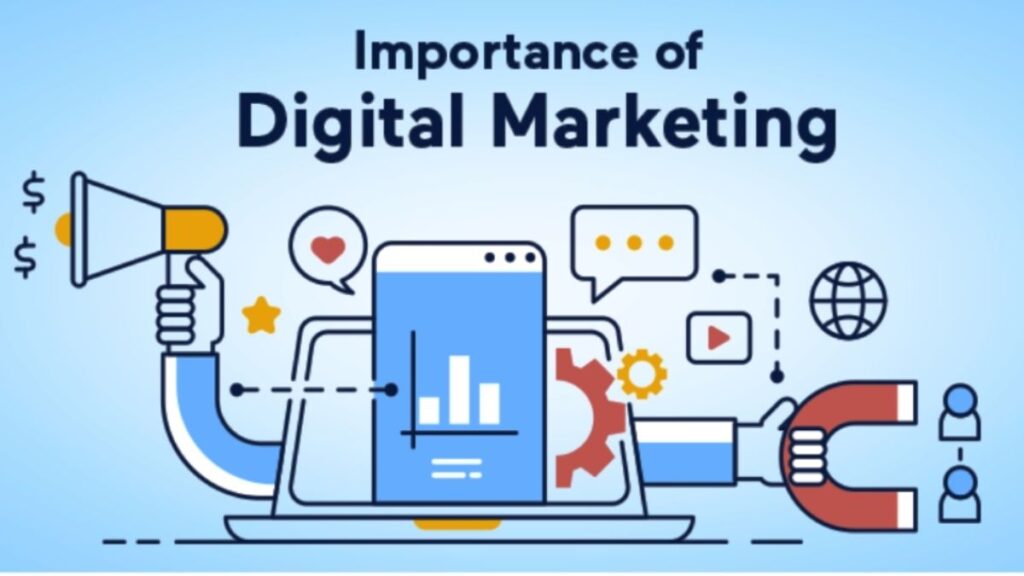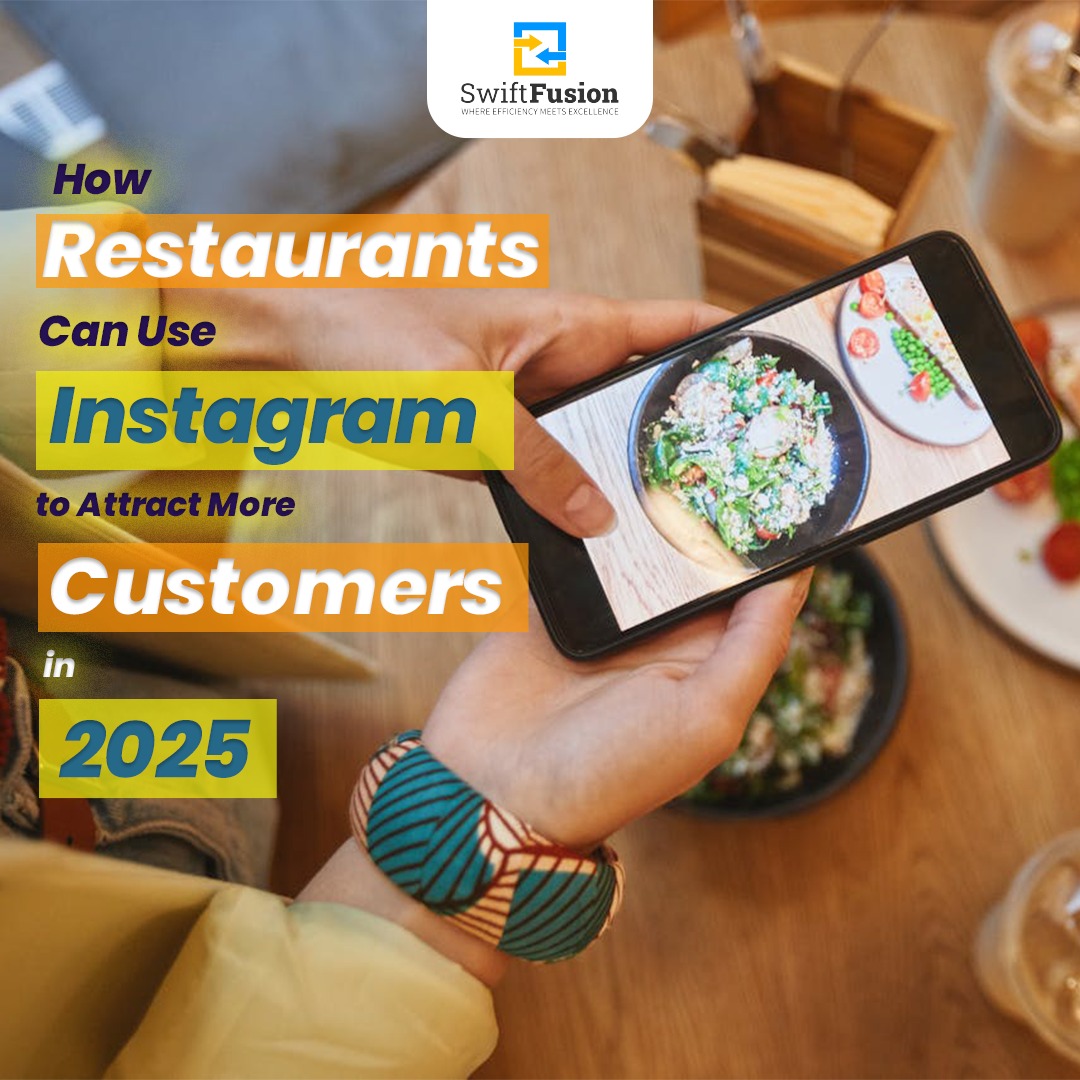This blog dives deep into the essence of digital marketing, exploring its various types, benefits, and why it’s crucial for businesses in 2024 and beyond.
What is Digital Marketing?
At its core, digital marketing involves leveraging online channels to promote or sell products and services. These channels include social media, content marketing, SEO, email marketing, and more. Unlike traditional marketing methods, digital marketing enables businesses to reach a global audience, personalize their messaging, and track performance in real-time.
Why Digital Marketing Matters for Your Business?
- Reach Your Audience Where They Are
With over 5 billion internet users worldwide, digital marketing allows businesses to meet customers where they spend most of their time—online. From social media platforms like Instagram and LinkedIn to Google search results, the internet is a goldmine of potential customers waiting to discover your brand.
- Reach Your Audience Where They Are
- Cost-Effective and Scalable.
Digital marketing offers unparalleled flexibility in budget allocation. Whether you’re a small business or a large corporation, you can start small and scale as you grow. Channels like email marketing and SEO are cost-effective yet highly impactful, making them ideal for businesses with limited resources.
- Cost-Effective and Scalable.
- Precise Targeting and Personalization.
One of the standout advantages of digital marketing is its ability to target specific demographics, interests, and behaviors. This means your campaigns are more likely to resonate with your audience, leading to better engagement and higher conversion rates.
- Precise Targeting and Personalization.
- Data-Driven Insights.
Digital marketing provides access to real-time analytics and performance metrics. Tools like Google Analytics and social media insights allow businesses to track what’s working and adjust strategies on the go, ensuring maximum ROI.
- Data-Driven Insights.
Types of Digital Marketing
- Search Engine Optimization (SEO).
SEO involves optimizing your website to rank higher on search engine results pages (SERPs). By using relevant keywords, improving site navigation, and creating authoritative content, you can increase organic traffic and enhance your brand’s visibility.
- Search Engine Optimization (SEO).
- Content Marketing.
Content is king in the digital space. Blogs, videos, infographics, and podcasts can establish your brand as a thought leader while providing value to your audience. Engaging content not only attracts visitors but also keeps them coming back for more.
- Content Marketing.
- Social Media Marketing.
Platforms like Facebook, Instagram, LinkedIn, and TikTok allow businesses to interact directly with their audience. Through organic posts and paid advertisements, you can expand your reach, build brand loyalty, and drive traffic to your website.
- Social Media Marketing.
- Pay-Per-Click (PPC) Advertising.
PPC campaigns, such as Google Ads, let you pay only when someone clicks on your ad. These campaigns are highly targeted and can deliver immediate results, making them a valuable addition to your marketing mix.
- Pay-Per-Click (PPC) Advertising.
- Email Marketing.
Despite being one of the oldest digital marketing methods, email marketing remains incredibly effective. It allows you to nurture leads, promote offers, and maintain a direct line of communication with your customers.
- Email Marketing.
- Influencer Marketing.
Collaborating with influencers can amplify your brand’s visibility and credibility. By tapping into an influencer’s audience, you can reach potential customers who trust the influencer’s recommendations.
- Influencer Marketing.
Real-World Success Stories in Digital Marketing
Amazon’s Data-Driven Personalization.
Amazon’s success in the digital marketing realm is a masterclass in leveraging customer data. By analyzing browsing history, purchase behavior, and customer preferences, Amazon provides personalized product recommendations that keep users engaged and drive sales. Their “Customers who bought this also bought” feature is a simple yet powerful tactic that has become a hallmark of their digital strategy.
Nike’s Social Media Campaigns.
Nike excels in connecting with its audience through inspirational and inclusive social media campaigns. Their “You Can’t Stop Us” campaign on Instagram and YouTube celebrated resilience and unity during challenging times. By combining user-generated content, powerful storytelling, and strong visuals, Nike managed to engage millions, fostering a deep emotional connection with their brand.
Starbucks’ Loyalty Program.
Starbucks has redefined customer engagement through its mobile app and rewards program. By integrating gamification and personalized offers, Starbucks encourages repeat visits and brand loyalty. The app’s ease of use, combined with regular updates and special deals, has made Starbucks a leader in customer retention through digital marketing.
How to Create an Effective Digital Marketing Strategy.
- Define Your Goals Start with clear, measurable objectives. Use the SMART framework (Specific, Measurable, Achievable, Relevant, Time-bound) to outline what you aim to achieve.
- Understand Your Audience Conduct thorough research to identify your target audience’s demographics, interests, and pain points. This ensures your campaigns resonate with the right people.
- Choose the Right Channels Not all platforms will suit your business. Focus on the ones where your audience is most active and tailor your approach accordingly.
- Develop a Content Plan Create a content calendar to ensure consistency. Use a mix of formats like blogs, videos, and social media posts to keep your audience engaged.
- Analyze and Optimize Regularly monitor your performance metrics and tweak your strategies to improve results. Continuous improvement is the key to long-term success.
Overcoming Common Challenges in Digital Marketing
- Staying Ahead of Trends
- The digital landscape evolves rapidly. Invest in continuous learning to keep up with changes in algorithms, consumer behavior, and emerging technologies.
- Managing Budget Constraints
- Start small and focus on cost-effective strategies like local SEO and social media. Gradually scale your efforts as you see results.
- Creating Consistent Content
- Consistency is crucial. Use scheduling tools and content calendars to ensure regular posting and engagement.
Conclusion: The Future is Digital
Digital marketing isn’t just an option—it’s a necessity in today’s business environment. By embracing digital strategies, you can unlock unprecedented opportunities to connect with your audience, build brand loyalty, and drive growth.
Remember, success in digital marketing comes from understanding your audience, delivering value, and continuously adapting to changes in the digital landscape. So, take the leap, craft your strategy, and watch your business thrive.?





